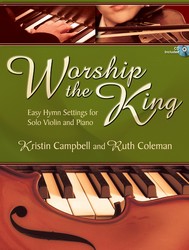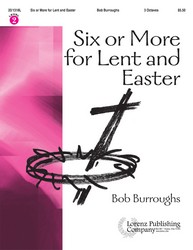- |
User Links
Ho ve! ĉu sangis la Savant'

Ho ve! ĉu sangis la Savant'
Author (stanzas): Isaac Watts (1707); Author (refrain): Robert Lowry (1885); Translator: Leland Bryant Ross (1999)Published in 3 hymnals
Audio files: MIDI
Representative Text
1. Ho ve! ĉu sangis la Savant'?
Ĉu mortis mia Di'?
Ĉu li oferus kapon sanktan
Pro pekema mi?
Ĉe la kruc', ĉe la kruc',
Kie trafis min la lum',
Kaj la ŝarĝo de la kor' falis for,
Tie mia fid' iĝis klara vid',
Kaj nun mi feliĉas en la kor'!
2. Ĉu mortis li pro mia krim'?
Ho granda am-deklar'!
Kompat' mirinda, grac' sen lim',
Kaj amo sen kompar'!
Ĉe la kruc', ĉe la kruc',
Kie trafis min la lum',
Kaj la ŝarĝo de la kor' falis for,
Tie mia fid' iĝis klara vid',
Kaj nun mi feliĉas en la kor'!
3. Ja dece kovris sin la sun',
Sin kaŝis ĝia bril':
Por homaj pekoj per krucum'
Kompensis Dia Fil'.
Ĉe la kruc', ĉe la kruc',
Kie trafis min la lum',
Kaj la ŝarĝo de la kor' falis for,
Tie mia fid' iĝis klara vid',
Kaj nun mi feliĉas en la kor'!
4. Ruĝigus min pro hont' skrupulo
Antaŭ lia kruc',
Kaj kaŭrus mi dum ĉe l' okul'
Fluegus larma ŝpruc'.
Ĉe la kruc', ĉe la kruc',
Kie trafis min la lum',
Kaj la ŝarĝo de la kor' falis for,
Tie mia fid' iĝis klara vid',
Kaj nun mi feliĉas en la kor'!
5. Sed larmaj gutoj ne repagos
Kiom ŝuldas mi:
Jen, ho Sinjor', mi cedas min;
Ne eblas fari pli!
Ĉe la kruc', ĉe la kruc',
Kie trafis min la lum',
Kaj la ŝarĝo de la kor' falis for,
Tie mia fid' iĝis klara vid',
Kaj nun mi feliĉas en la kor'!
Source: TTT-Himnaro Cigneta #194
Author (stanzas): Isaac Watts
 Isaac Watts was the son of a schoolmaster, and was born in Southampton, July 17, 1674. He is said to have shown remarkable precocity in childhood, beginning the study of Latin, in his fourth year, and writing respectable verses at the age of seven. At the age of sixteen, he went to London to study in the Academy of the Rev. Thomas Rowe, an Independent minister. In 1698, he became assistant minister of the Independent Church, Berry St., London. In 1702, he became pastor. In 1712, he accepted an invitation to visit Sir Thomas Abney, at his residence of Abney Park, and at Sir Thomas' pressing request, made it his home for the remainder of his life. It was a residence most favourable for his health, and for the prosecution of his literary… Go to person page >
Isaac Watts was the son of a schoolmaster, and was born in Southampton, July 17, 1674. He is said to have shown remarkable precocity in childhood, beginning the study of Latin, in his fourth year, and writing respectable verses at the age of seven. At the age of sixteen, he went to London to study in the Academy of the Rev. Thomas Rowe, an Independent minister. In 1698, he became assistant minister of the Independent Church, Berry St., London. In 1702, he became pastor. In 1712, he accepted an invitation to visit Sir Thomas Abney, at his residence of Abney Park, and at Sir Thomas' pressing request, made it his home for the remainder of his life. It was a residence most favourable for his health, and for the prosecution of his literary… Go to person page >Author (refrain): Robert Lowry
 Robert Lowry was born in Philadelphia, March 12, 1826. His fondness for music was exhibited in his earliest years. As a child he amused himself with the various musical instruments that came into his hands. At the age of seventeen he joined the First Baptist Church of Philadelphia, and soon became an active worker in the Sunday-school as teacher and chorister.
At the age of twenty-two he gave himself to the work of the ministry, and entered upon a course of study at the University of Lewisburg, Pa. At the age of twenty-eight he was graduated with the highest honors of his class. In the same year of his graduation, he entered upon the work of the ministry. He served as pastor at West Chester, Pa., 1851-1858; in New York City, 1859-1861;… Go to person page >
Robert Lowry was born in Philadelphia, March 12, 1826. His fondness for music was exhibited in his earliest years. As a child he amused himself with the various musical instruments that came into his hands. At the age of seventeen he joined the First Baptist Church of Philadelphia, and soon became an active worker in the Sunday-school as teacher and chorister.
At the age of twenty-two he gave himself to the work of the ministry, and entered upon a course of study at the University of Lewisburg, Pa. At the age of twenty-eight he was graduated with the highest honors of his class. In the same year of his graduation, he entered upon the work of the ministry. He served as pastor at West Chester, Pa., 1851-1858; in New York City, 1859-1861;… Go to person page >Translator: Leland Bryant Ross
American Baptist layman. Amateur hymnologist and polyglot. Translator of many hymns into, and author of a few in, Esperanto, as well as some hymns in English. 13 texts (incl. 3 original) in Adoru, plus two in Espero Katolika's supplement. Edited the largest online Esperanto hymnal, TTT-Himnaro Cigneta, now accessible via the Wayback Machine at archive.org, (https://web.archive.org/web/20091021113553/http://geocities.com/cigneto/pretaj.html) as well as in large part here on Hymnary.org. Lives near Seattle. Go to person page >Text Information
| First Line: | Ho ve! ĉu sangis la Savant' |
| Title: | Ho ve! ĉu sangis la Savant' |
| English Title: | Alas! and did my Saviour bleed? |
| Author (stanzas): | Isaac Watts (1707) |
| Author (refrain): | Robert Lowry (1885) |
| Translator: | Leland Bryant Ross (1999) |
| Language: | Esperanto |
Tune
BALERMA (Barthélemon)MARTYRDOM (Wilson)
MARTYRDOM was originally an eighteenth-century Scottish folk melody used for the ballad "Helen of Kirkconnel." Hugh Wilson (b. Fenwick, Ayrshire, Scotland, c. 1766; d. Duntocher, Scotland, 1824) adapted MARTYRDOM into a hymn tune in duple meter around 1800. A triple-meter version of the tune was fir…
HUDSON (Hudson)


 My Starred Hymns
My Starred Hymns






